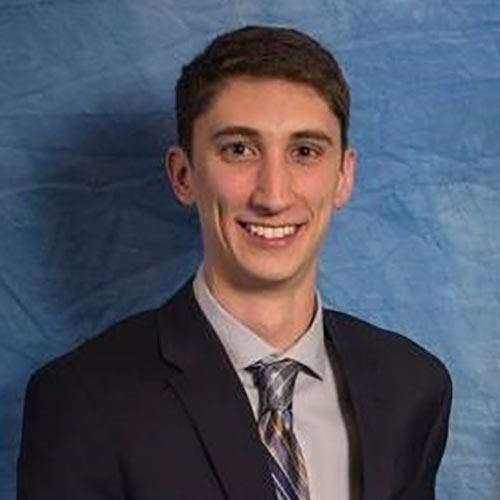 Student: Peter Schwarzenberg
Student: Peter Schwarzenberg
Project: Mechanical Analysis of Distal Femur Fracture Fixation
View: Research Poster (PDF) | Presentation (YouTube)
Department: Mechanical Engineering and Mechanics
Advisor: Hannah Dailey
Abstract
In human fracture healing, the patient’s baseline health status contributes to the overall risk of complications during the healing process. Multivariate analysis of large outcomes databases has implicated numerous comorbid conditions as risk factors for delayed healing and nonunion, including diabetes and other systemic diseases, cigarette smoking, and substance abuse.1,2 However, the extent to which these comorbidities delay fracture healing has never been directly measured in humans. To address this question, we developed a methodology for non-invasive clinical assessment of long bone shaft fracture healing using virtual mechanical testing.3 The objective of the current study was to determine whether subtle deficiencies in fracture healing associated with comorbid conditions can be detected using virtual mechanical testing. We hypothesized that patients with closed fractures and comorbidities would have a longer time to union and lower early mechanical integrity of their fractures compared to patients with closed injuries and no known comorbidities.
REFERENCES: [1] O’Halloran K, et al., Clin Orthop Relat Res, 474:1385-95, 2016. [2] Dailey HL, et al., J Orthop Trauma, 32(7):e263-9, 2018. [3] Dailey et al., J Bone Joint Surg, 101-A(13):1196-1202, 2019.
About Peter Schwarzenberg
Peter is a 5th year PhD candidate in mechanical engineering and is scheduled to defend his dissertation in April 2021. He completed both his bachelor’s and master’s degrees in mechanical engineering at Lehigh University. After graduating with his bachelor’s degree in 2016, Peter joined Professor Hannah Dailey’s lab for his graduate work. The Dailey Lab focuses on using computational methods to develop techniques to assist in the clinical care of orthopaedic trauma events, such as bone fractures. The Dailey Lab works closely with Orthopaedic surgeons and veterinarians across the world to develop promising techniques that can have real clinical impact.
